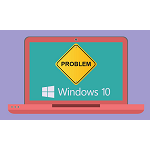
In this article…
What is the LanmanServer (Server) service?
The LanmanServer service allows your computer to share files and printers with other devices on your network.
The service’s display name is Server and it runs inside the service host process, svchost.exe. By default, the service is set to start automatically when your computer boots:
What happens if I stop the LanmanServer service?
There will be a couple of potentially significant consequences if you stop the Server service.
1. File sharing will not work
Is your computer hosting a shared folder? If so, that folder will no longer be available to network computers once you stop LanmanServer.
Mapped drives pointing to your computer’s shared folders will be inaccessible and remote users will experience abrupt errors like this:
In addition, all sharing controls will disappear from your computer’s File Explorer windows.
For example, the drive properties window has a Sharing tab while LanmanServer is running:
But once the service stops, the Sharing tab vanishes:
Of course, only remote users will be impacted. The underlying files and folders will still be available on the computer hosting the drive.
2. Remote printing will not work
Is your computer sharing its printer with other computers? If so, the service being down will affect folks printing from those other computers.
Specifically, Windows will tell them that the remote printer is “Offline”. All their print requests will enter the print queue, patiently waiting for the printer to come back online:
Note that local printing (from the computer with the printer attached) will still work. Only remote users/computers will be affected.
Is it safe to disable LanmanServer?
Yes, it should be safe to disable the service — provided that your computer is not sharing files or printers. As mentioned above, those services won’t operate without the Server service.
Note that Internet-based networking features (for example, accessing web sites from your browser) will still be available when the service is disabled. In theory, many non-networked or home computers will do just fine without LanmanServer always running.
And because LanmanServer doesn’t have any dependencies, disabling it shouldn’t prevent any other services from starting up:
However, despite the above evidence to the contrary, Microsoft recommends keeping the Server service enabled. Unfortunately they don’t provide a reason or explanation!
Please proceed with caution if you decide to disable the LanmanServer service.
Questions? Problems?
If you would like to know more about the Server service, or you have a specific problem, please feel free to get in touch. We will do our best to help you!










Thank you for providing a easy-to-understand explanation of this service that answers the question on whether it is safe to disable or not and for doing so without pushing some questionable third-party software that should be used to get rid of it like other sites do. Refreshing…
You are welcome Scott!
thank you for this great site! and article on lanman server.
What about disabling lanman workstation, this has high cpu.
I do not share with anyone other than my own desktop pc.
Much deep thanks.
Win7
Hi Jack, sorry to hear about the high-CPU troubles.
If your computer isn’t sharing drives or printers, disabling LanmanServer should be fine. Try it and see.
thanks for the quick reply.
I asked about
::::: disabling lanman workstation ::::::
Hi Jack.
We’ll have to take a deep dive into LanmanWrkstation to answer your question, but the guidance from Microsoft suggests that only networking components will be affected if the service is disabled.
Two things. First, I can’t find the first screen capture – Server properties. I am an admin equivalent login.
Second. I go into Control Panel Admin services and can’t find the Lanmanager service (understand it’s hiding). Very frustrating to see this lovely post but unable to use it.
Hi Andi
What version of Windows are you using?
It’s very strange that you cannot find the service. What do you get when you run this command from an elevated/administrator command prompt?
thanks soooooooooo much!! :):):):):)